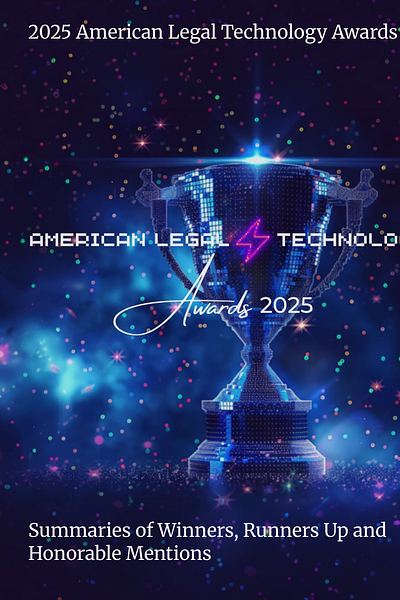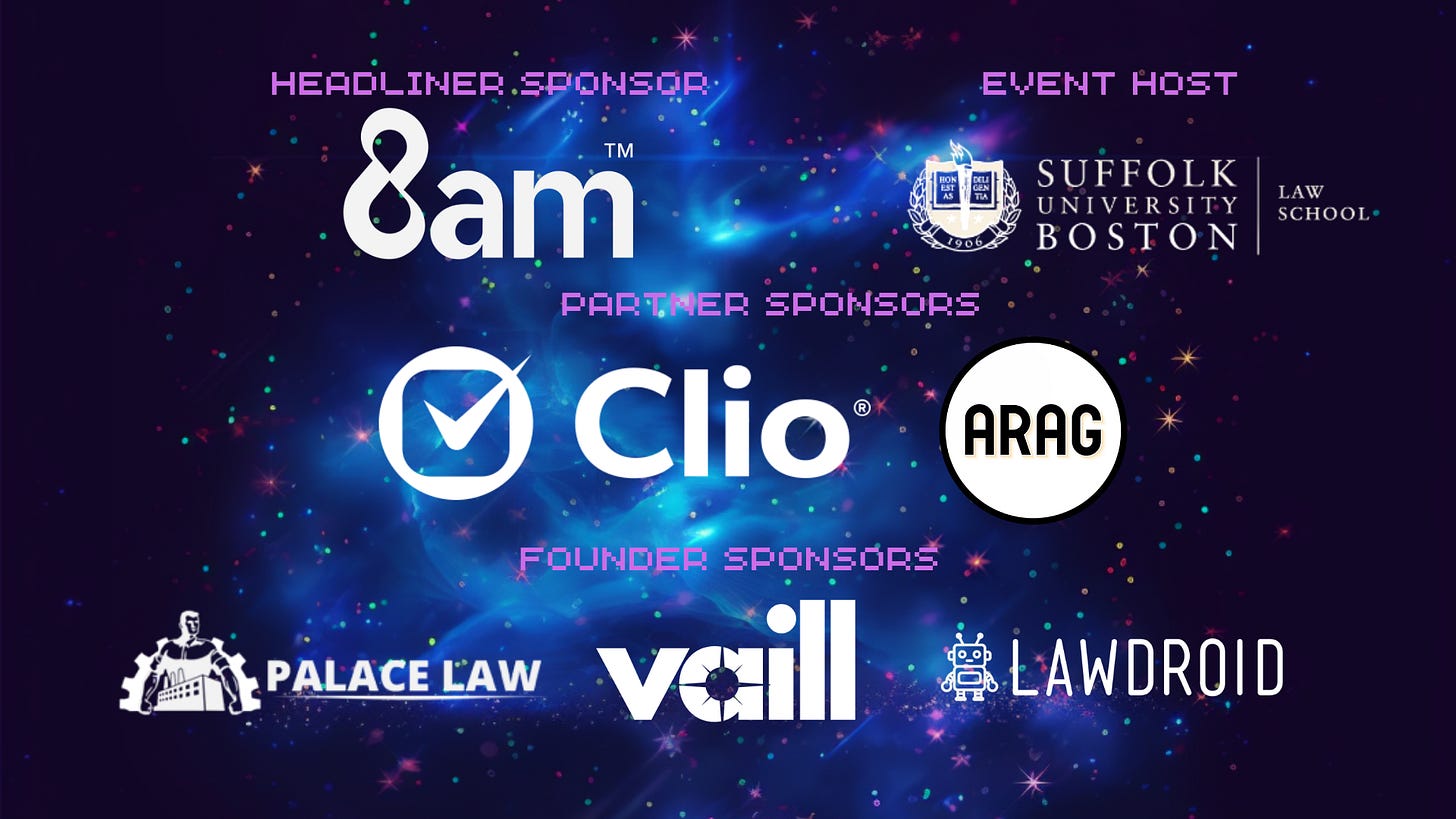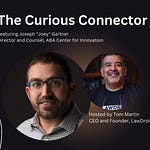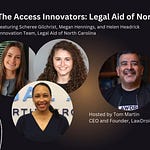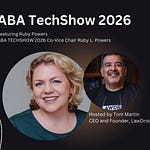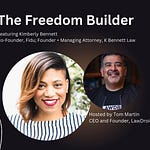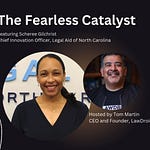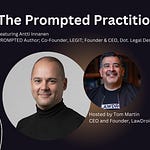We gathered in Boston, a city that knows something about starting a revolution, to celebrate the sixth American Legal Technology Awards at Suffolk University Law School. I gave the Mission Talk and said out loud what many of us have felt all year: “this… is the time to build.” We experimented, we planned; now we build: together.
From the stage, my co‑founder Patrick Palace paused before announcing the startup winners and reminded us where we were standing: in the birthplace of a revolution. He traced the lawyer’s oath from monarchy to constitutional fidelity (John Adams and all), and warned what happens when a profession pledges fealty to a person or an ideology instead of a charter. “The oath needed to be an oath to the Constitution, not to an ideology, not to a person,” Patrick said. “If we are not careful with this oath…we may lose both access and then God forbid, justice.” That’s not abstract history; it’s a map for the road ahead.
What I love about this community is that we hold both truths at once: principle and progress. On the progress side, the winners painted a picture of the world we’re choosing to live in, one where the system treats people with dignity and actually gets them to the finish line. Maryland Justice Passport’s Sarah Coffey Bowes put it plainly: “we really set out to make the delivery of legal services more humane,” and they’re doing it, coordinating intake across ten organizations. Humane isn’t a buzzword there; it’s a measurable design choice.
And “finish line” kept echoing. Ohio Legal Help’s team said it best: “we talk about access to justice, but if we can’t get them to the finish line, it’s incomplete.” In Cuyahoga County alone, nearly 25,000 people made it farther than they would have otherwise, because mobile‑first, plain‑language paths beat labyrinthine forms every time. That’s the future: outcomes, not just interfaces.
We also honored integrity woven into access. ClaimScore stood up and said what many of us whisper in hallways: “We’ve seen up to 99% of claims [in a single class action] be fraudulent… These bad actors are stealing millions from class members who deserve this.” Then they showed how to fix it without shutting the door on legitimate claimants. Guardrails, not gatekeeping.
Public‑interest AI got a standing‑tall moment too. Free Law Project’s Jennifer Whiston captured the north star: “the law should be accessible to everyone… Everything we do is open source… We keep a human in the loop in everything that we do.” In an era of hype, that sentence is ballast: transparency and accountability as operating principles.
Culture change showed up from the enterprise and firm side, not as demos but as habits. Onit’s acceptance speech was gloriously caffeinated, “AI conceived by lawyers for lawyers… we’re allergic to inefficiency,” and behind the joke was the point: people who’ve lived the late‑night redline pain are designing the agents to remove it. Gunderson Dettmer’s ChatGD+ is in similar vein: a firm choosing continuous learning over one‑off pilots so tech evolves with practice, not around it. That’s how you anchor innovation in real work.
And journalism matters in a moment like this. Marlene Gebauer accepted the Journalism award and reminded us that “podcasting’s about telling stories.” When the stories get better, our field gets better: because ideas find their people faster, and humility outruns hype.
If Patrick gave us a compass, Cat Moon handed us a lamp. She spoke about shining a bright light on the work so we can “be inspired by each other, learn from each other, and make each other better, because that is the only way that we are going to leverage technology to do what we need it to do.” She said she wakes up worried about “how few people get help with their legal problems,” and that’s why she does this work. Many of us nodded because we feel that in our bones.
I tried to put our mission into words, because mission matters most when the world is noisy. From day one, we built these awards to be grassroots: to expand what’s possible, encourage a virtuous cycle of improvement, and create a more just society. And I said the quiet part out loud: “One thing that’s more important than technology is us. Human beings… when we work together and collaborate… we all want better lives for ourselves and our families.” I still believe that the morning after, and the morning after that.
The night’s deepest chord, though, belonged to our Lifetime Achievement honoree, Jim Calloway. In Jim’s world, technology education isn’t a side dish; technology education is social justice, a way to give real people real options. He closed with a challenge so practical it’s hard to dodge: “If the people in this room would reach out, even if it’s just teaching one enrichment course, you could change a lawyer’s life.” If you want an agenda for the next twelve months, you could do a lot worse than that single sentence.
I also promised to make it easier to learn from one another. We created write‑ups of each honoree: copy what works, remix it, and get it deployed faster to help people nearest to you. We had 211 nominations this year and 27 judges, proof there’s a lot worth learning from, and a lot of people willing to give their time so the best ideas rise.
Two days later, I’m still hearing Boston outside the windows, history reminding us that our oaths and our tools are only as good as the people who use them. We can choose openness over secrecy, outcomes over optics, culture over pilots. We can build courts that help people to the “finish lines” and not just offer “forms.” We can build products that bake integrity into them so those who need the most assistance, get it. We can build classrooms where one enrichment session turns a struggling practice into a sustainable one and it, in turn, can help more people.
From my heart, thank you. To Suffolk University Law School for opening its home to us; to every nominee, runner‑up, and winner who gave us a picture of the future to copy; and to our sponsors whose steady belief makes this commons possible: Clio, ARAG, 8AM, and so many others who show up year after year. And thank you to our award guests and friends who filled the room with warmth, curiosity, and courage.
Dear readers, to you the invitation is the same one I extended from the stage: come build with us. Adopt a winner’s idea where you work. Teach one session. Tell one story. Reach one colleague. The future you want to live is the future you help make.
It’s the time to build. Let’s get to it.



